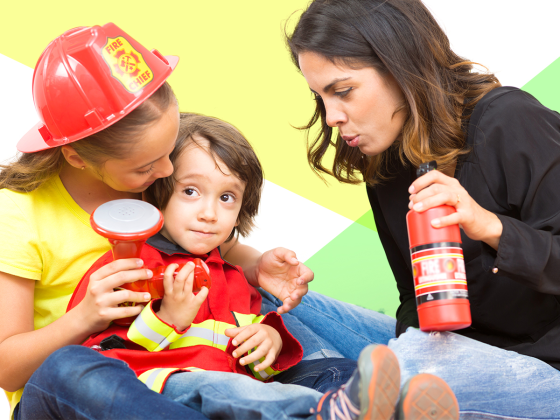
Five Easy Ways to Get Emergency-Ready
Consider five ways to prepare for the unexpected.
A few simple things can get you more prepared for an emergency. You don’t have to do everything at once! Start small with some of these ideas:
- Learn whole names. Help children practice saying their own and family members’ whole names. Knowing these names can help family members find each other if they are separated in an emergency.
- Practice addresses and phone numbers. Knowing these will allow a trusted adult to help contact you.
- Point out special helpers in your neighborhood so children know which adults they can trust to help in an emergency. You can play “I Spy” to help children learn where to spot important helpers such as doctors, police officers, firefighters, and teachers.
- Make an emergency plan to collect important information in one place. Write down your plan and post it where everyone can see. Keep copies of your plan in the car, in children’s backpacks, at work, with childcare providers, and with an out-of-town emergency contact.
Print an emergency plan here. - Make an emergency kit. Start with things that you already have (extra water bottles, canned food, an extra change of clothes), and then build from there. Add an item or two to your shopping list each week until your kit is done.
Print an emergency kit checklist here
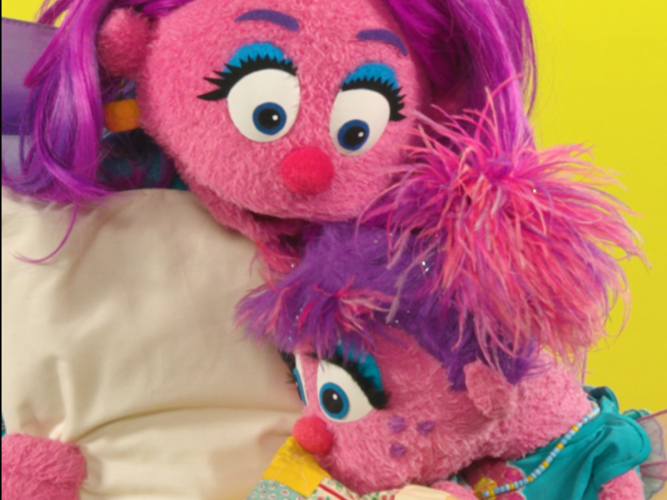
Safe & Together
When families have to leave home in order to stay safe, it helps to remember that home is where the love is.
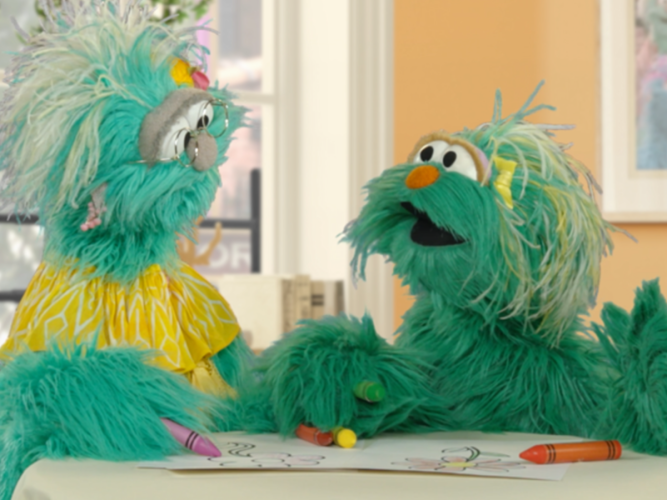
Crayon Power
Coloring together can soothe both children and grown-ups.
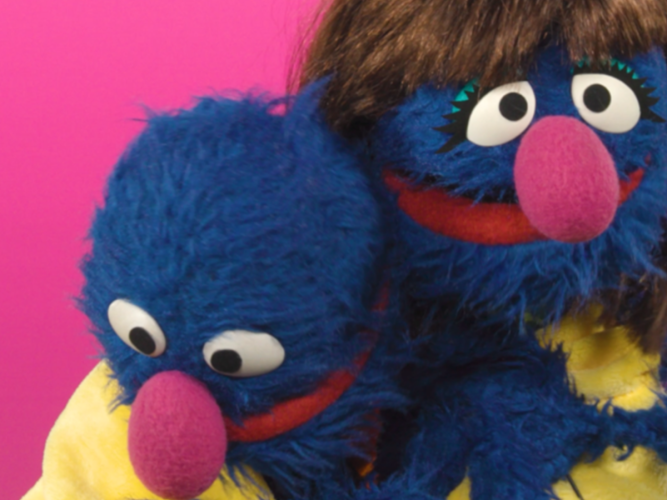
Comfy-Cozy Blanket
A simple blanket can become a great tool to help children feel safe, soothed, and loved.
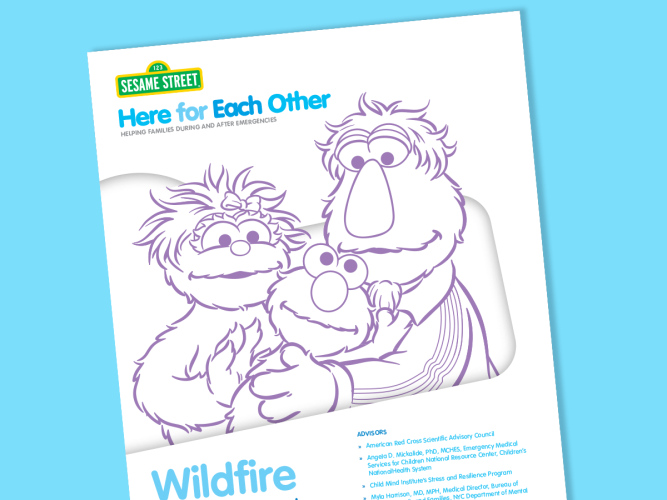
Here for Each Other Family Guide: Wildfires
This family guide has tips and activities that offer comfort and reassurance before, during, or after a wildfire.
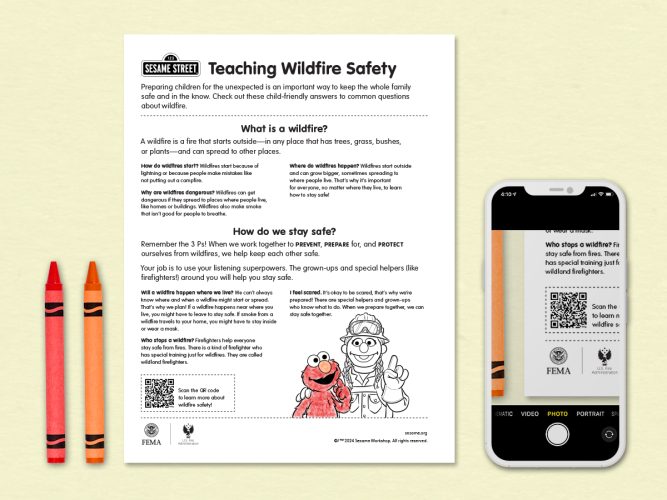
Teaching Wildfire Safety
Learn some simple age-appropriate answers to questions children might have about wildfire.
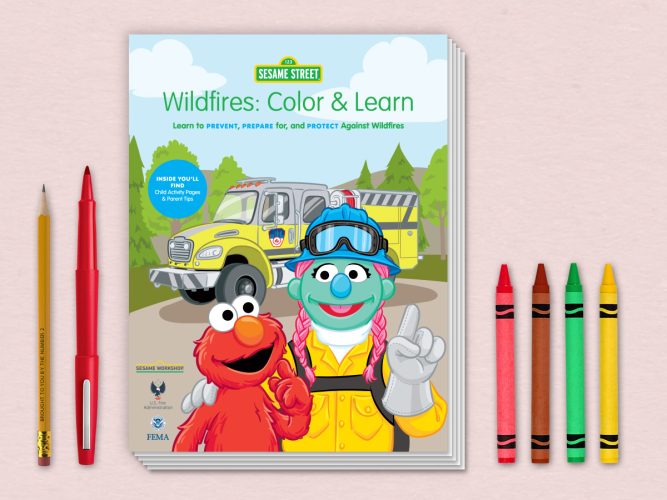
Wildfires: Color & Learn
An activity book that explores strategies to prevent, prepare for, and protect from wildfire—for children and grown-ups alike.
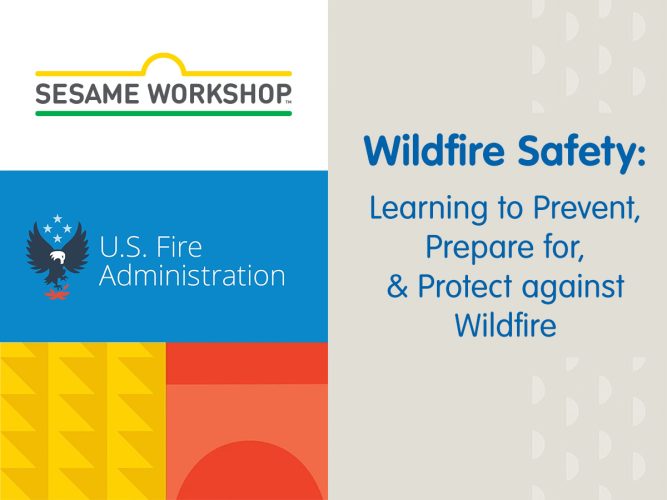
Wildfire Safety: Prevent, Prepare, Protect
A webinar with wildfire expert Teresa Neal from the U.S. Fire Administration about involving children in wildfire preparedness.
